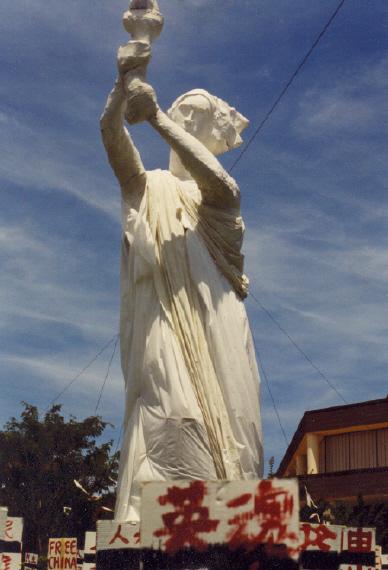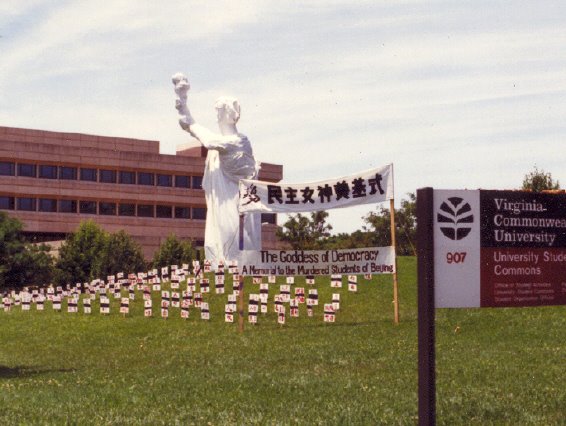(This piece was originally published by the Richmond Times-Dispatch
on June 19, 2011)
Over the past 10 years, how many cool nightclubs and edgy theaters didn't open in Richmond? How many popular touring shows skipped Virginia's capital city, chiefly because the risk-and-reward ratio — the chance to make a profit — was better somewhere else?
Since it's hard to prove what might have happened, any numbers offered here would just be guesses. However, Richmond's 7 percent admissions tax is surely the villain in this story about lost opportunities.
How this tax works to hobble show business is something few Richmonders understand. (By the way, this is not a tax issue that cuts along ideological fault lines, so there's no need to look for that aspect of it.)
In a nutshell, smart operators know Richmond is not an entertainment-industry-friendly town.
Noise ordinances and efforts to prevent dancing aside, at the top of the list of reasons the part of downtown around the convention center isn't already dotted with live stages — and doesn't already have a thriving live music scene — is the admissions tax. The few venues that are open are getting by in spite of City Hall's anti-show biz attitude.
*
Richmond's admissions tax comes off the top of the gross for every event that has a ticket price of 50 cents or more. That means live music, movies, ball games, lectures and so on.
By the way, Chesterfield County and Henrico County don't have an admissions tax. Which means it's usually smarter for a movie distributor to ship a print of its feature film to a cinema in the suburbs.
Here's the reason why: Exhibitors and distributors usually agree to split what revenue comes in at the box office. The percentages can vary greatly, depending on the situation.
Let's say the distributor of "Blood Feast VII" agrees to a 50/50 deal with two area theaters. The Blue Cinema in Henrico County and the Orange Theater in Richmond will open the picture on the same Friday; both exhibitors will pay the movie's distributor 50 percent of the box-office take.
Unfortunately, "Blood Feast VII" flops; it plays in this market just one week. Both cinemas take in the same amount of money — just $2,000 each. The distributor will get a check for $1,000 from the Blue and a check for $930 from the Orange, which had to send the city $140.
Of course, the Orange Theater will also have to pay all the other ordinary taxes and fees that businesses in Richmond must pay. Even a nonprofit like the struggling Byrd Theatre in Carytown has to cough up the 7 percent admissions tax.
*
The same problem plays out with live shows, too. If you want to rent 15 music halls for a Bruce Springsteen tour of the East Coast, you will consider several factors in choosing the best situations. In this region, one will stand out: If you rent a Charlottesville music hall, zero in admissions tax will come out of the gross.
Seven percent off the top of a $1 million gross from a live Springsteen show is $70,000 — a number hard to ignore.
The problem with the admissions tax is not so much that consumers object to paying it. It's that promoters don't want to bring their shows here. And, for a small club, having to pay 7 percent of what comes in at the door, when the band of local musicians usually gets that money, takes a nasty bite out of profits.
Consequently, there are fewer clubs and fewer gigs. Fewer gigs mean more area musicians have to keep a day job, or they just leave town.
Richmond takes in about $1.4 million a year in admissions taxes. Yet, if you ask how much it costs to collect that money, curiously, no one who works for the city seems to know the answer.
The admissions tax in Richmond is not unique. Unlike, Charlottesville, most cities in Virginia do have such a tax; the rate varies.
*
In April of this year, a delegation of Richmond's leaders visited Austin, Texas — the so-called Live Music Capital of the World — to study what that city might be doing right. Among other things, the visitors learned that cultivating a live music scene is good for business.
With no admissions tax in the way, Austin encouraged a world-class live music scene to develop. Its best musicians don't have to leave town to make a living.
Meanwhile, in Richmond, our government officials are wishing they could charge a 7 percent admissions tax on a hot show that didn't come here. They're dreaming of taxing trendy venues that don't exist.
Perhaps some are even wondering about jobs that didn't come here, because yet another company chose a city more friendly to its creative class for its new headquarters.
*
Note: My latest post on this topic is here at SLANTblog.
-- 30 --



